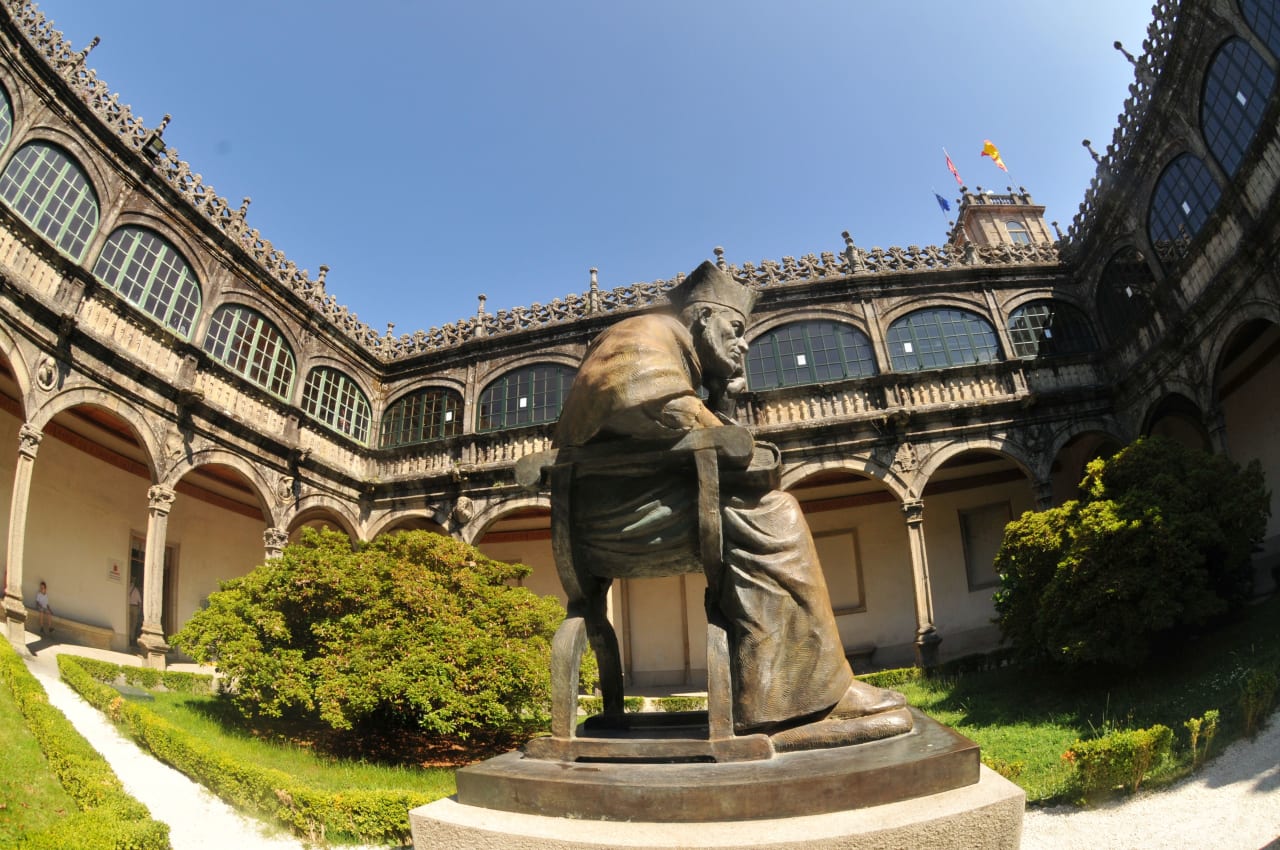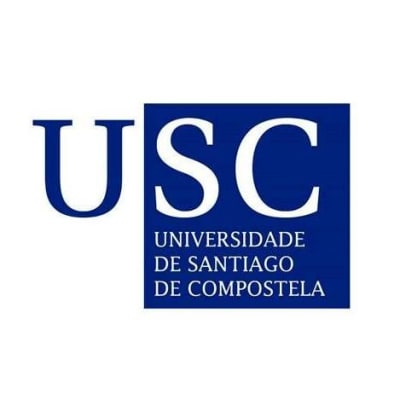
PhD in Laser, Photonics and Vision
Universidade Santiago de Compostela

Key Information
Select location
Campus location
Santiago de Compostela, Spain
Languages
Spanish, Galician
Study format
On-Campus
Duration
3 years
Pace
Full time
Tuition fees
EUR 200 / per year
Application deadline
Request info
Earliest start date
Request info
Introduction
The optical science and technology of Laser, Photonics and Vision is a field of knowledge whose objective is the study of the generation, transmission, detection, control and manipulation of light. This study is oriented towards the development of technologies with applications of high interest in multiple and disparate socioeconomic and health fields, ranging from telecommunications, life and health sciences, the environment, industrial metrology, leisure... to the scientific-technical frontiers such as nano-optics, quantum processing and communications, optical metamaterials, etc.
This science ranges from the development of devices that are part of everyday life to innovative research that reaches the frontiers of scientific knowledge. The evolution of optical science and technology of Laser, Photonics and Vision has been constant throughout history, accompanying the development of many other disciplines that directly contributed to progress and innovation. Currently and naturally, optics is complemented by electronics, computing, micromechanics, etc., giving rise to a myriad of highly specialized applications (industrial optical metrology techniques, bio-optical instrumentation, environmental optical sensors). , telecommunications, correction of visual defects, lighting, etc) and consumer products (digital cameras, projectors, optical storage media, all kinds of ophthalmic lenses, etc). In socio-political terms, the scientific-technical sector of optical and photonic science and technology is extremely important for the great challenges of the 21st century, and in fact photonic technologies are considered strategic technologies (KETs) by the Commission European.
Lines of investigation
- Laser technologies and vision
- laser and photonics
Gallery
Ideal Students
1) Students who come from official master's degrees with topics related to the Doctoral Program will be able to access the Doctoral Program without training supplements, for example: the USC-UVigo-UDC Interuniversity Master's Degree in Photonics and Laser Technologies, USC-U Interuniversity Master's Degree .Valladolid, U. Coimbra,U..Murcia, UCM,UMH, in Research in Vision Sciences, Master UVigo -UdC in Applied Physics, Master UVigo in Research in advanced technologies and processes in industry, Master UPC- UAB- UB-ICFO in Photonics, UCM Master in Optical and Image Technologies, USAL Master in Physics and Laser Technologies, Master in Materials Science and Technology, Master in Renewable Energy, Master in Mathematical Engineering, Master in Physics, and others to be determined by the CAPD.
2) In the case of those students who come from Master's degrees whose content is not related to the Doctoral Program, admission may be conditional on passing specific training complements that must be specified for each student by the CAPD. These training complements will correspond, at most, to 12 ECTS.
3) Regarding the degree of knowledge of the English language, it is advisable to have accreditation of an intermediate B1 level of said language (level established within the European Framework of Reference on Language Knowledge) and accredited to the CAPD through any official certification. In the case of lacking said official certification, the CAPD will carry out the tests it deems appropriate: oral and/or written test and/or personal interview, to evaluate the student's knowledge of the English language, but they will always be required to acquire said certification. certification during the first two years of the program. The preferred working language will be English. Scientific English is considered essential for the programme.
4) Finally, as complementary information and recommendation to the regulatory process of access and admission to the doctoral program, it is advisable to indicate some aspects about attitudes, abilities, prior knowledge, languages, etc., which are considered highly recommended for those students interested in the program. doctoral program: a. Interest in scientific-technical research tasks, particularly in the field of lasers, photonics and vision. b. Know how to carry out systematic bibliographic searches on a specific scientific-technical aspect. c. Know how to structure and develop scientific work, based on the experience acquired in the Bachelor's and Master's degrees. d. -Have knowledge about optics in general and lasers, photonics and vision in particular. The more subjects, courses, etc. The student will take courses related to optics, the easier their transition through the program will be.
5) Students with a foreign degree that has not been approved may apply for admission to the doctoral program provided that a level of training equivalent to that of the official Spanish university master's degree is accredited and entitles the country issuing the degree to access the studies. Ph.D. This admission will not imply, in any case, the homologation of the previous degree or recognition for purposes other than those of access to these teachings.
Admissions
Curriculum
Formation activities
- Training seminars on specific laser, photonics and vision topics E1081A01
- Conferences on valorization and transfer of technology E1081A02
- Participation in workshops of students of the E1081A03 program
- Short research stays E1081A04
- Research training activity E1081A05
Training complements
- Optics I G1031321
- Optics II G1031327
- Fourier optics P1211213
- Nonlinear optics P1211214
- Quantum optics P1211215
- Photonic materials P1211216
- Integrated optics P1211218
- Fiber optics and communications P1211219
- Optical design and instrumentation P1211220
- Experimental techniques in photonics P1211233
- Laser systems P1211247
- Semiconductor Photonics P1211248
- Metrology and photonic sensors P1211249
Program Outcome
The doctoral program in Lasers, Photonics and Vision brings together the teaching and research experience of different research groups that are very active in the area of optics and specialized in the fields of lasers, photonics and vision.
The purpose of the program is the training in these fields, both in their most fundamental aspects and in their growing and spectacular applications, of internationally demanded scientists, technicians and entrepreneurs in both the academic and industrial sectors.
Lasers, Photonics and Vision is a field of knowledge whose objective is the study of the generation, transmission, detection, control and manipulation of light and the development of optical technologies with applications of high interest in multiple and disparate socio-economic sectors. economical.
It ranges from elements that are part of everyday life to innovative research that reaches the frontiers of scientific knowledge, and is extremely important for the great scientific-technical challenges of the 21st century and for the development of many other disciplines that contribute directly. to progress and innovation.